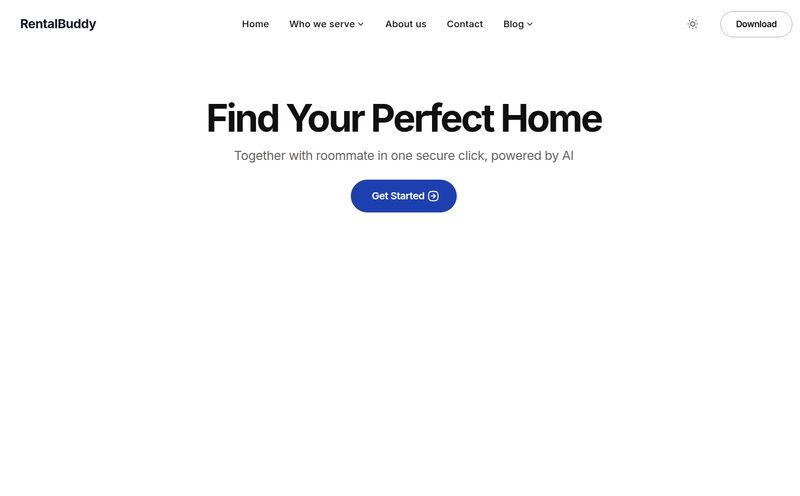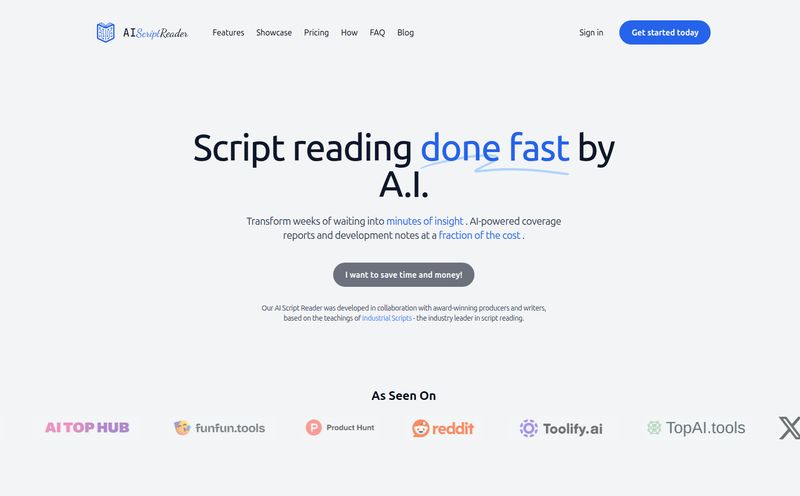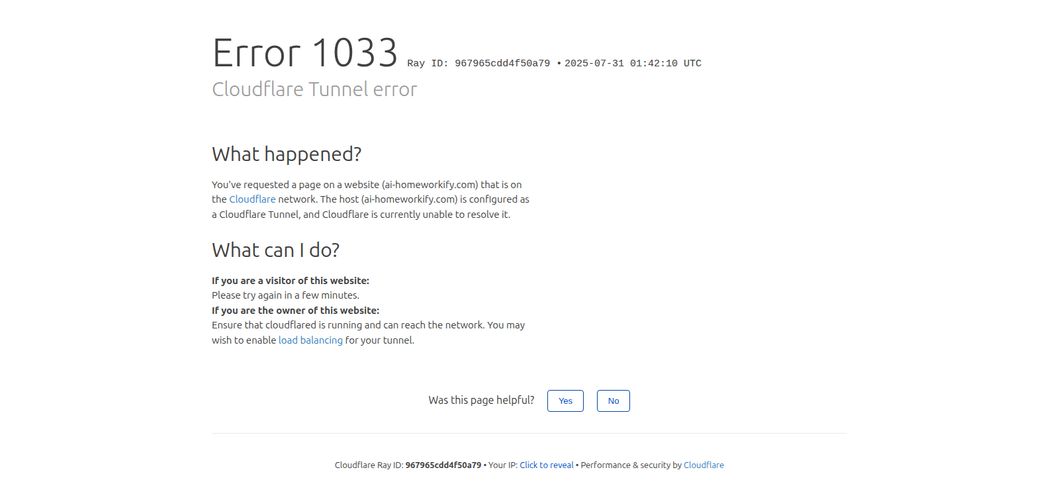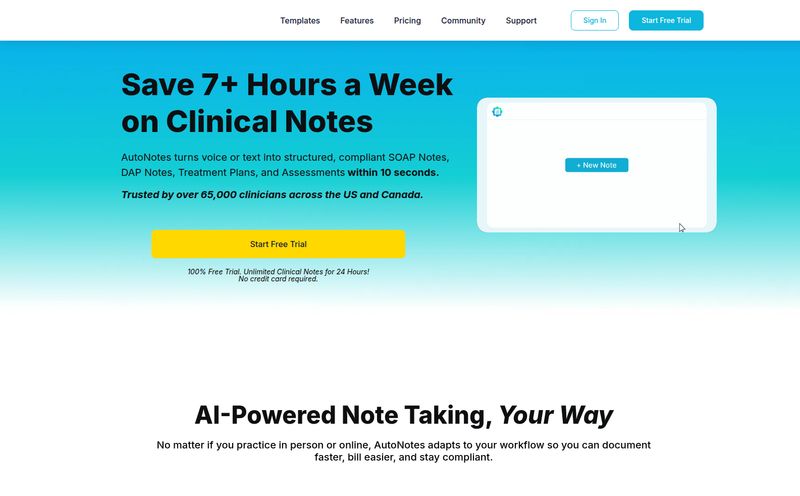If you're in the mental health field, you didn't get into it for the paperwork. You didn't dream of spending hours wrestling with clinical notes, chasing down intake forms, or playing phone tag for insurance verification. You did it to help people. Yet, here we are, drowning in administrative tasks that suck the life out of our days and, frankly, contribute to the massive burnout we're all seeing in the field. I've been in the digital marketing space for years, and I've seen countless tools promise to be the 'one-stop solution'. Most of them are just more noise.
But every now and then, something catches my eye. Something that looks… different. Less like a clunky, oversized EMR system and more like a smart, focused assistant. That’s the vibe I got from mdhub. It’s an AI-powered platform designed specifically for mental health clinics, and its core promise is audacious: to give you back 2 hours. Every. Single. Day.
Two hours? That's enough time to see another patient. To actually take a lunch break. To read up on new research. Or, dare I say it, to go home on time. So, is it just another overhyped piece of tech, or is this the real deal? Let's take a look.
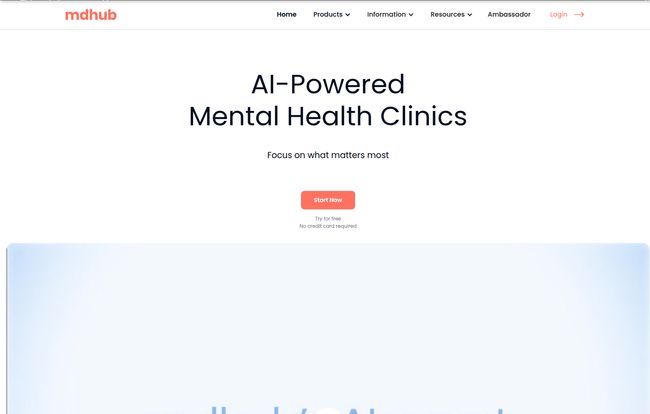
Visit mdhub
So, What is mdhub, Exactly?
Think of mdhub not as a replacement for your current system, but as an intelligent layer that sits on top of it. It’s not trying to be your everything; it's trying to be your best assistant. It uses generative AI to automate the most tedious parts of running a clinic—the stuff that happens before, during, and after a patient visit.
At its heart, it’s a two-part system. You've got a Clinical AI Assistant that helps with the nitty-gritty of session documentation, and an AI Intake Coordinator that handles all the front-end chaos. It's like having a hyper-efficient medical scribe and a world-class receptionist rolled into one, living inside your computer. The goal isn't to take over your job, but to handle the robotic parts so you can focus on the human parts.
How mdhub Actually Lightens Your Workload
The promise of “saving time” is pretty vague. So how does it actually happen? I’ve seen the feature list, and it breaks down into a few key areas that directly target the biggest time-sucks in a clinician's day.
The AI Scribe That Listens and Learns
This is the centerpiece, in my opinion. The workflow is beautifully simple: you record the audio of your session (with patient consent, of course!), and the AI gets to work. Within seconds of the session ending, it generates a structured clinical note. We’re talking SOAP notes, patient summaries, treatment plans—the works. It’s like having a scribe who never gets tired and has perfect recall.
But here’s the part I really like: it’s customizable. You can tweak the prompts and templates to match your own unique style. This is huge. The biggest failing of many automated systems is that they produce generic, soulless text. mdhub seems to understand that a clinician’s notes need to reflect their voice and perspective. It gives you a 90% complete draft that you can quickly review and sign off on. That alone is a game-changer compared to typing everything from scratch while trying to remember a conversation from hours ago.
Making Patient Intake Less Painful
The AI Intake Coordinator is the other half of this power duo. It automates that whole initial scramble. It can gather patient information, send out the necessary forms, and even check insurance eligibility before the first appointment. Imagine a world where every new patient shows up with their paperwork already done and their insurance verified. No more awkward conversations about coverage, no more time wasted in the waiting room with a clipboard. It smooths out the entire patient journey from the very first click.
Closing the Loop with Automated Follow-ups
Patient engagement doesn't end when the session does. Follow-ups are critical, but they're also easy to forget when you're juggling a dozen other things. mdhub can automate patient communications, sending reminders, check-ins, or even educational material based on your custom settings. It helps maintain that connection with patients between visits, which can lead to better outcomes and a more supportive patient experience overall.
Let's Talk Money: The mdhub Pricing Plans
Alright, this is where the rubber meets the road for any small practice or solo clinician. A tool can be amazing, but if it costs a fortune, it's a non-starter. Honestly, I was pleasantly surprised by their pricing structure. It seems designed to let you grow into it.
| Plan | Price | Who It's For |
|---|---|---|
| Free | $0 / month | The curious or those with a very light caseload. You get 5 sessions/month and 5 automated emails. A great way to test the waters with no risk. |
| Lite | $50 / month | Part-time clinicians or small practices. This gets you up to 30 sessions and 30 automations, which is a pretty solid amount for a growing practice. |
| Pro | $119 / month | Full-time clinicians and expanding practices. Unlimited everything—sessions, emails, follow-ups. Plus dedicated support. This seems to be the sweet spot for anyone who's all-in. |
The fact that they offer a genuinely useful free plan is a massive vote of confidence in their own product. They're basically saying, "Try it. We know you'll see the value."
The Realistic Side: What You Need to Consider
No tool is perfect, and it's my job to be a bit of a skeptic. While mdhub looks incredibly promising, there are a few things to keep in mind. First, and this is non-negotiable, you need patient consent to record sessions. This needs to be part of your intake process, clearly explained and documented. It’s a trust issue and a legal one.
Second, there's going to be some initial setup. You'll need to customize your note templates and prompts to get the output you want. This isn’t a flaw, it’s a feature, but it does require an initial time investment. Don't expect to just flip a switch and have it read your mind on day one.
Finally, it's AI. It's amazing AI, but it's not a licensed clinician. You still have the final responsibility to review the notes for accuracy and nuance. Think of it as an incredibly skilled assistant who prepares a draft for your final approval, not a robot that does your job for you. A quick proofread is still necessary, but that’s worlds away from writing it all from scratch.
Common Questions I Had (and Found Answers To)
How does data privacy and security work?
This is probably the most important question. According to their site, they take privacy seriously. For any US-based clinician, ensuring HIPAA compliance is paramount. While they don't scream HIPAA on every page, any serious player in this space knows it's table stakes. You'd want to confirm the specifics when you sign up, but the focus on security seems to be there.
Can I explain this to my patients easily?
Yes, and you should. You can frame it as: "I'm using a secure tool that helps me focus more on our conversation instead of on taking notes. It acts as a scribe to help me capture the details of our session accurately, ensuring I don't miss anything important." Most patients will appreciate that you're investing in being more present with them.
Does it work with my existing EHR?
The idea is that mdhub generates the notes and documents, which you can then easily copy and paste or upload into your existing EHR/EMR. This 'integration' is more of a workflow enhancement. It avoids the nightmare of full-scale data migration and allows the tool to be flexible with whatever system you're already using.
Is it difficult to get started?
Based on the workflow (Record, Generate, Customize), it seems pretty straightforward. The Free plan is the perfect sandbox. You can sign up without a credit card and just… try it. See if the notes it generates work for you. See if the interface feels intuitive. That's the best way to know for sure.
Will it support different languages?
The FAQ on their site mentions this, which is a great sign. For clinicians working with multilingual communities, this could be a standout feature. You'd want to check which languages are currently supported, but the awareness is there.
My Final Verdict on mdhub
Look, the promise of getting two hours back a day is a tall order. But from what I've seen, mdhub has a legitimate shot at delivering it. By targeting the most universally hated administrative tasks in a mental health practice—notes, intake, and follow-up—it frees up an incredible amount of mental and physical energy.
This isn't just about efficiency; it's about sustainability. It's about tackling the roots of clinician burnout and allowing practitioners to get back to the meaningful work they were meant to do. The pricing is accessible, the features are smart, and the focus is right where it needs to be. If you're feeling buried by the daily grind of your practice, I'd say giving mdhub's free plan a spin isn't just a good idea—it might just be the best administrative decision you make all year.
Reference and Sources
- mdhub Official Website - For the most current information on features and pricing.
- Physician Burnout Data from the AMA - Context on the widespread issue of burnout in healthcare professions.
